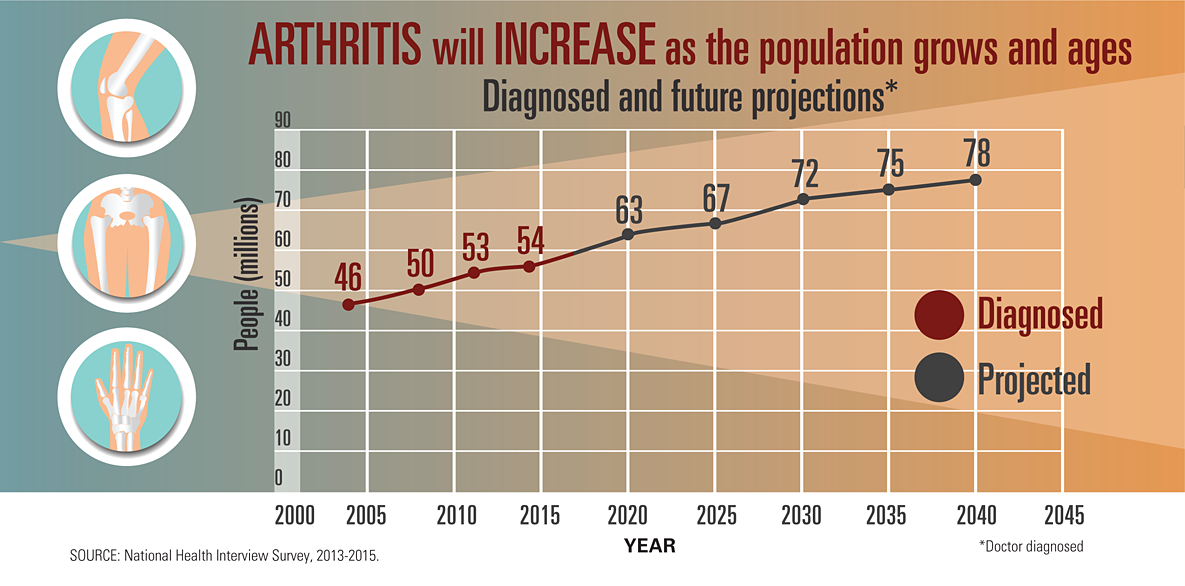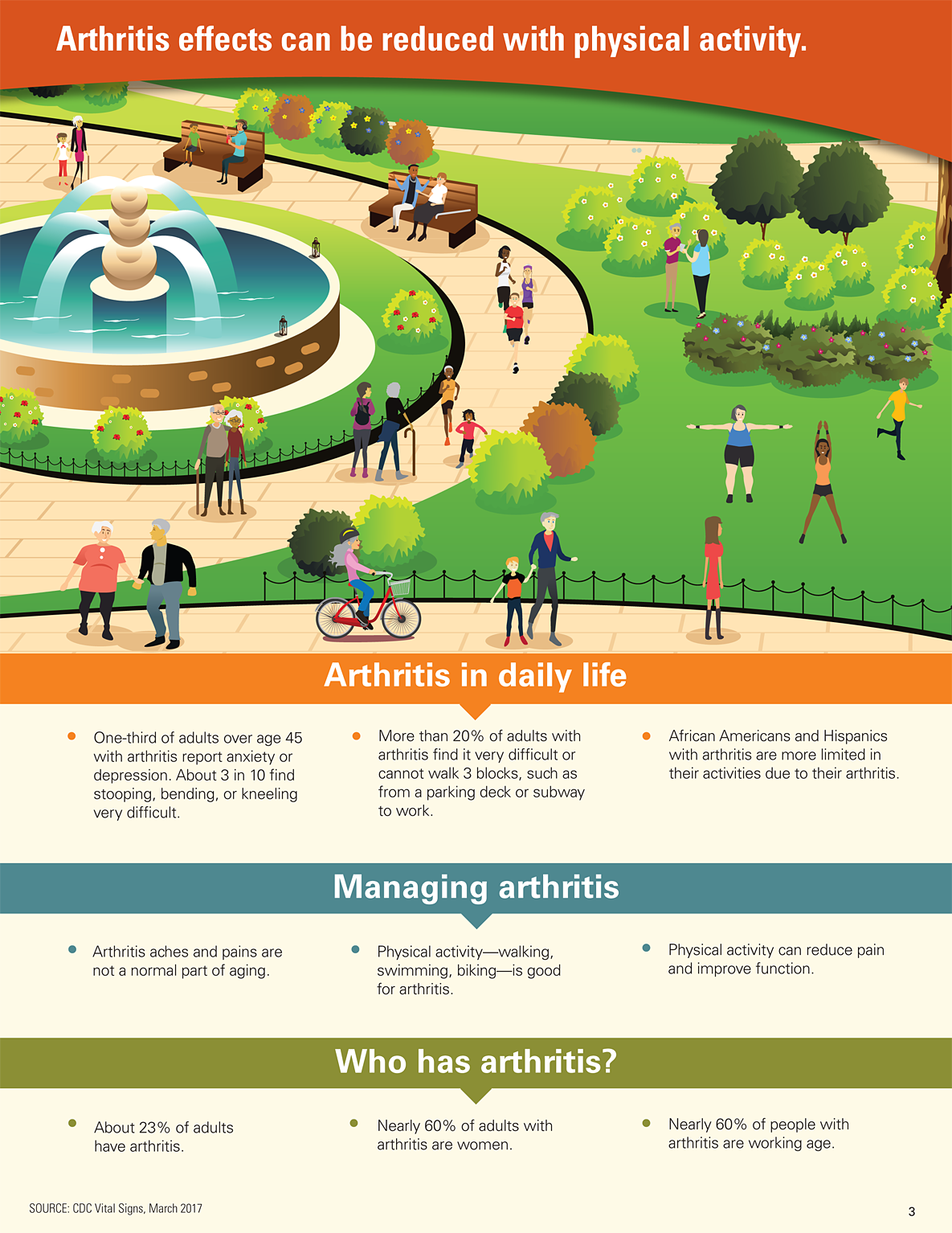Vital Signs: Arthritis in America – Infographics
Vital Signs: Arthritis in America - Infographics
Time to Take Action!

Arthritis will increase as the population grows and ages
Diagnosed and future projections*
|
Year |
People (millions) |
Diagnosed/Projected |
|---|---|---|
| 2004 | 46.4 | diagnosed |
| 2008 | 49.9 | diagnosed |
| 2011 | 52.5 | diagnosed |
| 2014 | 54.4 | diagnosed |
| 2020 | 62.7 | projected |
| 2025 | 67.2 | projected |
| 2030 | 71.5 | projected |
| 2035 | 75.1 | projected |
| 2040 | 78.4 | projected |
SOURCE: National Health Interview Survey, 2013-2015.

Arthritis effects can be reduced with daily physical activity.
This graphic shows mostly adults of different ages engaged in different levels of physical activity. The setting is a park, with people walking, standing, riding a bike, jogging, doing yoga exercises, and sitting on park benches. A water fountain is near the center, with several bushes surrounding it. A sidewalk borders the fountain and the grassy area of the park. People are walking, standing, and jogging on the sidewalk. Two women and one man walk with canes on the sidewalk, showing how even with limited mobility, it is still beneficial and possible to remain physically active.
Arthritis in daily life
- One third of adults with arthritis over age 45 report anxiety or depression. About 3 in 10 find stooping, bending, or kneeling very difficult.
- More than 20% of adults with arthritis find it very difficult or cannot walk 3 blocks, such as from a parking deck or subway to work.
- African Americans and Hispanics with arthritis are more limited in their activities due to their arthritis.
Managing arthritis
- Arthritis aches and pains are not a normal part of aging.
- Physical activity—walking, swimming, biking—is good for arthritis.
- Physical activity can reduce pain and improve function.
Who has arthritis?
- About 23% of adults have arthritis.
- Nearly 60% of adults with arthritis are women.
- Nearly 60% of people with arthritis are working age.
SOURCE: CDC Vital Signs, March 2017
